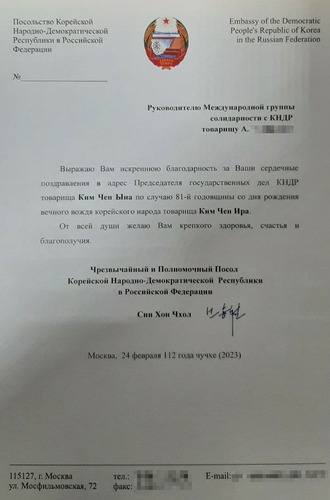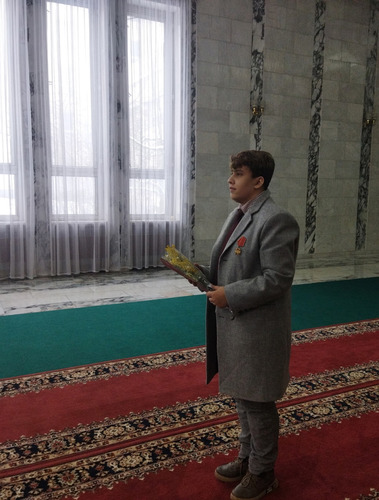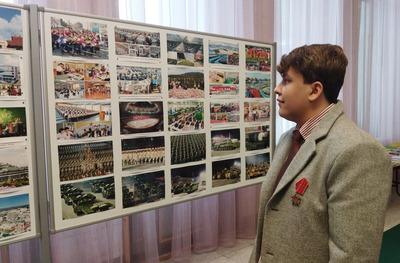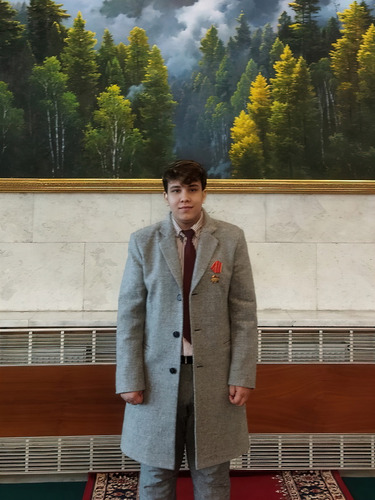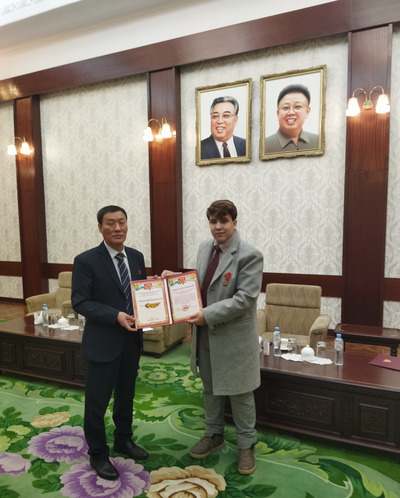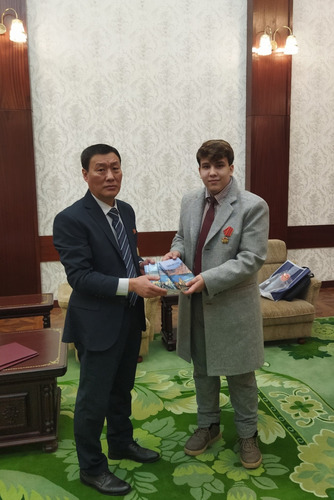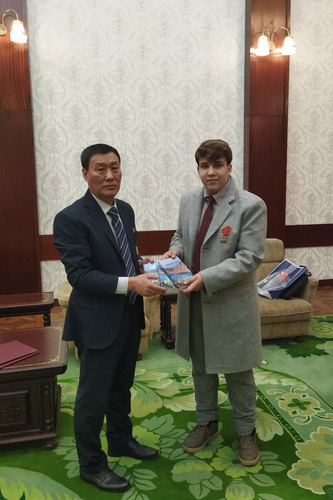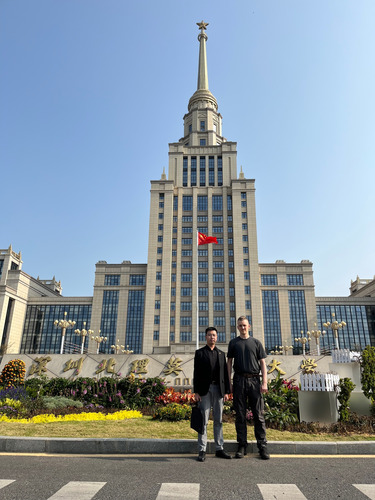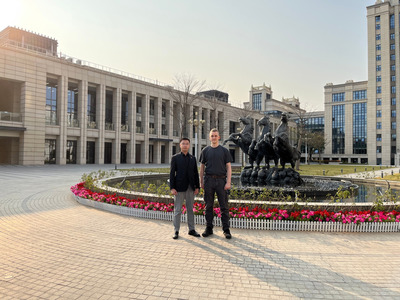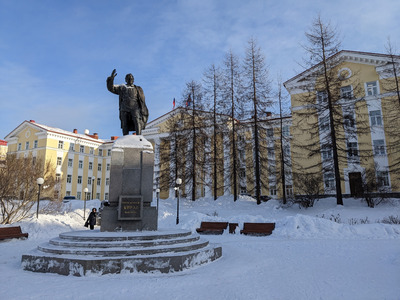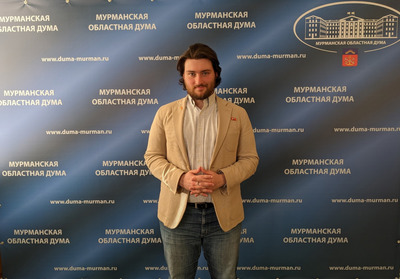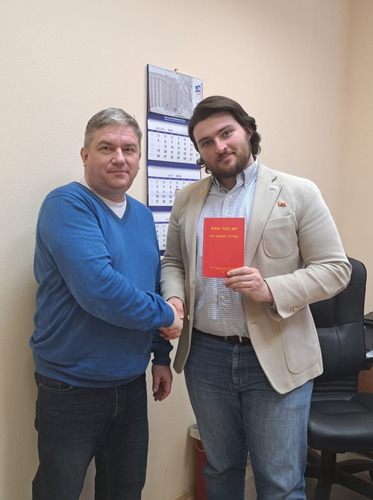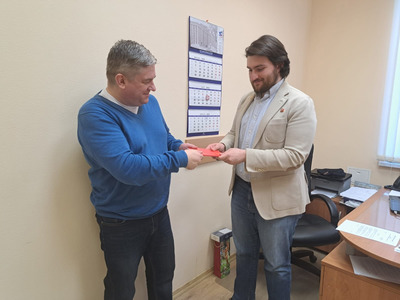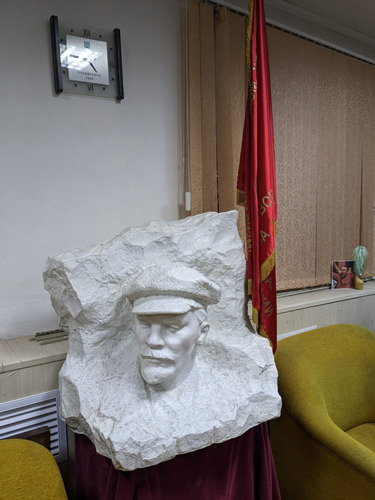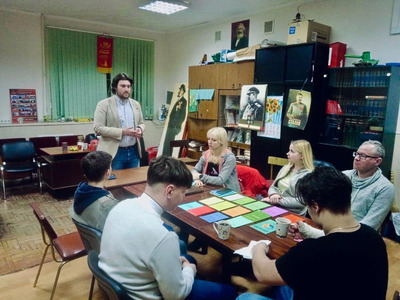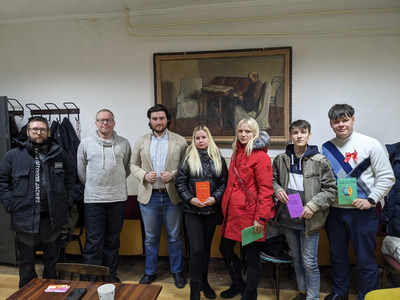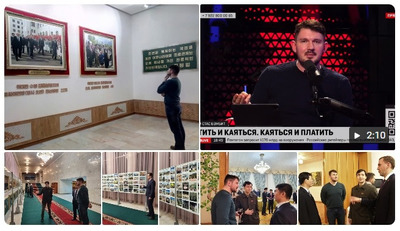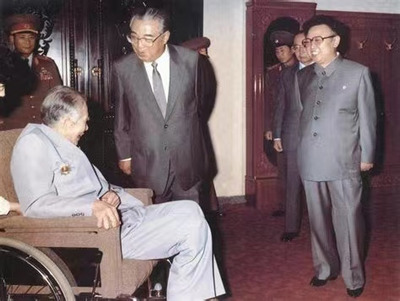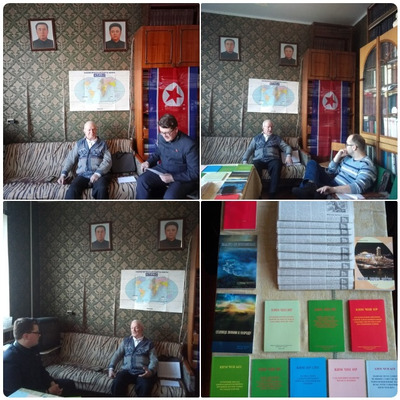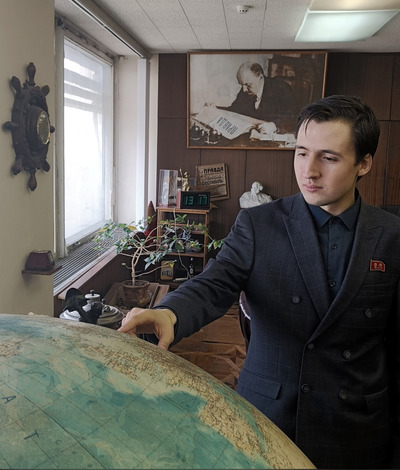11:18 DPRK ISG Activities in March Juche 112 (2023) |
April 21 (RSTV)
A detailed news report on the activities of the DPRK International Solidarity Group (DPRK ISG) in March 112 Juche (2023), including a preliminary list of members of the Coordination Committee of the second convocation, the start of full-fledged work of the Tajik Executive Committee, a business trip to the Arctic, etc.
General Meeting of the Coordination Committee of the DPRK ISG In early March, under the leadership of Comrade Alexander Mostov, a general meeting of the Coordination Committee of the DPRK ISG was held, at which important decisions were approved. A decision was made to hold the 2nd International Solidarity Congress, as well as the 5th and 6th Organizational Conferences. Below are the results of voting on the preliminary list of members of the Coordination Committee of the DPRK ISG of the second convocation.
During the voting, the personal file of Georgy Abzianidze and Klim Belsky was specifically reviewed. Since it was confirmed that the accusations against Comrade Abzianidze were slanderous, a decision was made to rehabilitate him with the restoration of membership in the Coordination Committee of the DPRK ISG. In turn, the activity of the Belarusian Executive Committee was resumed by a higher decision. The preliminary list of candidates for members of the Committee was approved: Vitaly Lebedev [elected unanimously] - Military Expert of the Scientific Committee, Klim Belsky [5/5 - decision was made by the Chairman of the Committee] - Head of the Belarusian Executive committee, Vadim Gordopolov [elected unanimously] - Regional Secretary in the Far Eastern Federal District, Alexander - Member of the German Executive Committee.
Data for other years:
The proposal of the Leader of our Group was considered to amend the Charter of the DPRK ISG, including the formation of the 1st Department of Peoples Diplomacy, the 2nd Department of Business and Strategic Planning, the 3rd Scientific Department, the 4th Department of Analytics and Security, the 5th Department of Information Policy. The proposal to establish the Information Bureau of the DPRK ISG was approved.
Letter of Appreciation from Comrade Sin Hong Chol Sin Hong Chol, Ambassador Extraordinary and Plenipotentiary of the DPRK to the Russian Federation, sent a letter of thanks to Alexander Mostov, Leader of the DPRK ISG. The letter says the following.
Comrade Murodbek Yuldoshev Met with DPRK Embassy Counselor Ri Gwan Hek On March 6, a working meeting was held between the Chairman of the Central Committee of the Communist Youth Union of the Republic of Tajikistan Murodbek Yuldoshev and Advisor to the Ambassador Extraordinary and Plenipotentiary of the DPRK Ri Gwan Hek. First, Murodbek Safarbekovich and Comrade Ri Gwang Hek exchanged greeting speeches. Comrade Yuldoshev conveyed greetings from the members of the Central Committee of the Communist Youth Union of the Republic of Tajikistan and presented gifts from the Komsomol members of the Republic of Tajikistan to the representative of the embassy. Comrade Ri Gwan Hek sincerely thanked Murodbek Safarbekovich for his active participation in the restoration of relations between the DPRK and the Republic of Tajikistan. He expressed readiness to work aimed at deepening youth cooperation, as well as strengthening friendship and bilateral interaction between our countries. Comrade Yuldoshev said:
Comrade Ri Gwang Hyuk and Comrade Sin Hong Chol were awarded the Certificates of Honor of the Central Committee of the Communist Youth Union of the Republic of Tajikistan for their active participation in the restoration of friendly relations between the peoples of the two countries. Further, the meeting participants discussed issues of strengthening cultural and educational ties. At the end of the meeting, Murodbek Safarbekovich and comrade Ri Gwan Hek expressed their hope for the soonest improvement of the epidemiological situation and the opening of borders, so that our countries could once again carry out traditional friendly visits.
Meeting of Leading Workers of the Chinese and German Executive Committees On March 7, Tim Trendelkamp, Representative of the German Executive Committee of the DPRK ISG, paid an official visit to the Chinese city of Shenzhen. Li Jizhen, Head of the Chinese Executive Committee of the DPRK ISG, warmly welcomed him in Shenzhen and talked about the affairs of the Group. The leaders of the Group discussed the cooperation between both sides in a friendly atmosphere.
Business Trip of Comrade Georgy Abzianidze On March 10, Georgy Abzianidze, head of the Russian Executive Committee of the DPRK ISG, paid a working visit to the cities of Murmansk and Olenegorsk in the Murmansk region. In Murmansk, a meeting was organized with the first secretary of the Murmansk Regional Committee of the Communist Party of the Russian Federation, a deputy of the Murmansk Regional Duma Artur Alexandrovich Popov. Artur Alexandrovich graciously agreed to carve out an hour from his schedule to find out in detail about the activities of the International Solidarity Group, as well as about the state of affairs in the DPRK itself, the prospects for its cooperation with Russia, as well as the prospects for cooperation between our organizations. On the evening of the same day in the city of Olenegorsk, in the premises of the local branch of the Communist Party, Comrade Abzianidze delivered a short 40-minute lecture to local party activists, devoted mainly to the ideas of Juche and Songun, their features, their relationship with Marxism and the historical context of their emergence and development. Comrade Abzianidze especially noted the symbolism of the fact that this lecture is being held in a region where they truly know how to appreciate the labor feat, and the entire history of which consists of this feat - no less than the modern history of the DPRK. During the lecture, the topics of the independent development of the DPRK both during the Cold War and at the present time, the features of the role of the Leaders in Korean society, as well as the information war against the DPRK were implicitly touched upon. Olenegorsk communists were also given literature - the works of President Kim Il Sung, General Kim Jong Il and Supreme Leader Kim Jong Un, as well as several copies of the work of Vitaly Lebedev, military expert of the Scientific Committee of the DPRK ISG, on the topic. The lecture was followed by a less formal tea party, after which the current relations between Russia and the DPRK, their prospects, as well as the features of the modern Korean political and economic structure were discussed in a question-and-answer format. The participants managed to reach a consensus on the issue that the DPRK is currently the most socialist state on the planet in terms of its internal structure, which, by rejecting as a concept kowtowing to external political theories and relying on a rich cultural heritage, has managed to create the most effective and stable social system, perfectly adapted to local conditions. Also, as a result of the event, it was decided to establish working relations between the DPRK International Solidarity Group and the Murmansk Regional Committee of the Communist Party of the Russian Federation. Ilya Bataev, First Secretary of the Murmansk Regional Committee of the Leninist Communist Youth Union, volunteered to be responsible for cooperation with the DPRK ISG. The parties agreed in the future to organize joint events and exchange information and materiel. I was pleased with the warm welcome given in the harsh northern region, and also impressed the activists of the Olenegorsk city committee. Not in every regional center there are such savvy in Marxism-Leninism, and at the same time active young comrades. Olenegorsk with a population of 20,000, a city, flesh and blood born of the era of socialism, really left the best impressions.
Meeting of Belarusian Executive Committee On March 18, a meeting was held dedicated to the successful holding of the 8th Plenum of the Central Committee of the WPK of the eighth convocation, as well as on the occasion of the 41st anniversary of the publication of the immortal work of the Great Leader Comrade Kim Jong Il. The meeting was opened by, Klim Belsky, Head of the Belarusian Executive Committee of the DPRK ISG with a report on the successful holding of the 8th Plenum of the Central Committee of the WPK of the eighth convocation, after which there were discussions of specific messages in the development of socialist agriculture in the DPRK, its further development and strengthening. Particular emphasis was placed on the food security of the DPRK, since in the current realities this issue is very acute for many countries of the world. The Republic of Belarus, like the Democratic People's Republic of Korea, has thoroughly and concretely approached the solution of this issue, having ensured its food security in all areas. The message specifically emphasized that in the DPRK, the gap between the city and the countryside, which was outlined during the lifetime of the great leaders of the Korean people, is gradually narrowing. Further, in the second part of the meeting, the reports on the occasion of the publication of the immortal work of the Great Leader Comrade Kim Jong Il "On the Juche Idea" were read and discussed.
Comrade Ri In Mo's Repatriation Anniversary On March 19, on the occasion of the anniversary of the repatriation of unconverted patriot Ri In Mo, Li Jizheng, Head of the Chinese Executive Committee of the DPRK ISG, issued the following commentary.
Activities of Stanislav Vasiliev In March, the Russian Executive Committee took part in the preparation of video material necessary for the publication of a video about the history of the national liberation struggle of the Korean people. Several working meetings were held with Russian video blogger Stanislav Vasilyev, who was given the necessary archival materials and photographs. During the month, Comrade Vasilyev repeatedly spoke on the Solovyov LIVE TV channel calling for the lifting of Russia's sanctions policy against the DPRK, and also expressed support for the just cause of our organization. On March 28, he attended a reception on the occasion of the 74th Anniversary of the Agreement on Economic and Cultural Cooperation between the Democratic People's Republic of Korea and the Russian Federation, where he had a conversation with Ju Kyong Su, First Secretary of the DPRK Embassy in the Russian Federation, and senior officials of the DPRK International Solidarity Group, including with Alexander Mostov, Ilya Kleimenov and Vitaly Lebedev.
Published Comments in Russian Media In connection with the increased tension in the world Alexander Mostov, Leader of the DPRK ISG, gave comments to the Svobodnaya Pressa publication. Comment from March 14 on the military situation on the Korean Peninsula:
Comment from March 22 on the situation in Ukraine:
|
| Category: Coordination Committee of the DPRK ISG | Views: 519 | | |
| Total comments: 0 | |
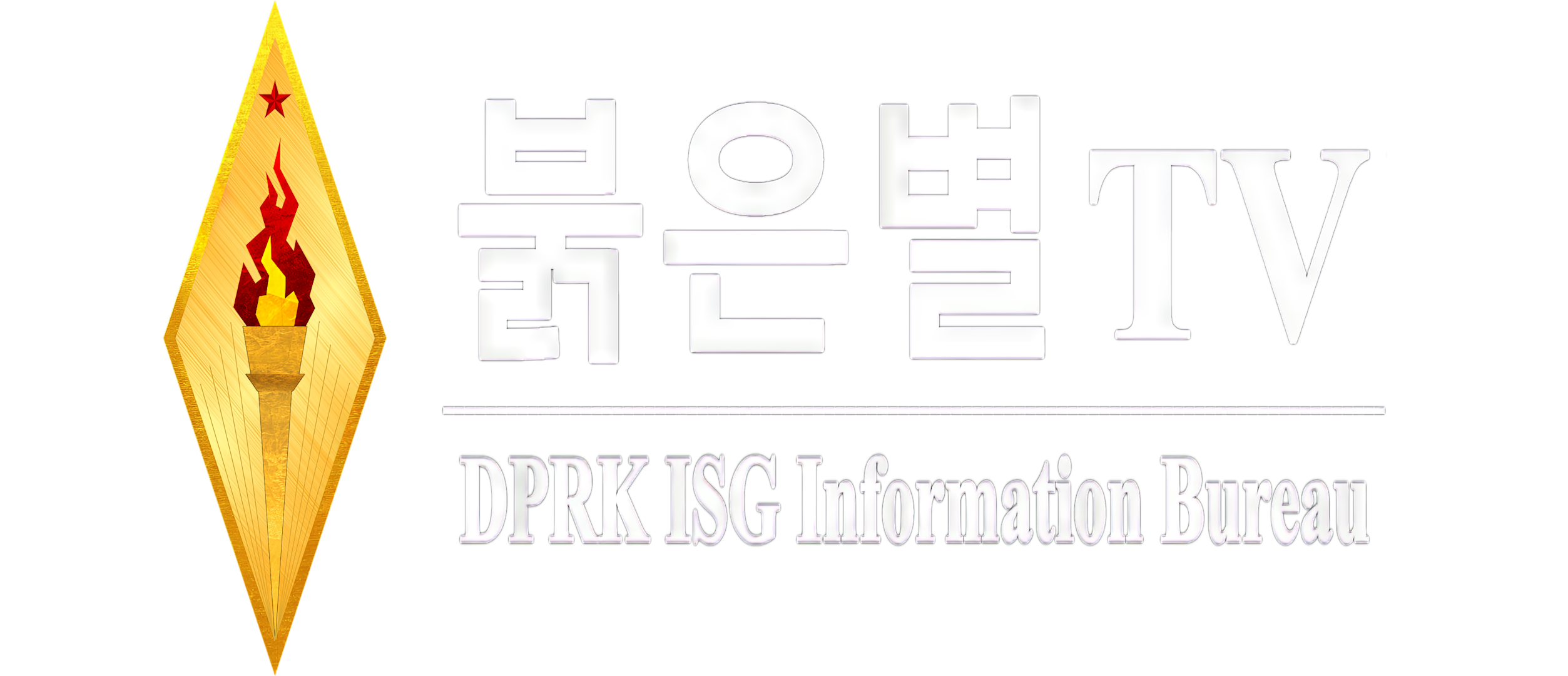
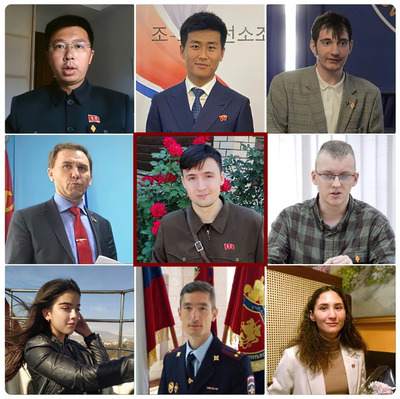
 Alexander Mostov, Chairman of the Coordination Committee [
Alexander Mostov, Chairman of the Coordination Committee [ Kim Yong Ju, Advisor to the Coordination Committee for Work with Public and Political Organizations [
Kim Yong Ju, Advisor to the Coordination Committee for Work with Public and Political Organizations [ Li Jizheng, Vice Chairman of the Coordination Committee and Head of the Chinese Executive Committee [
Li Jizheng, Vice Chairman of the Coordination Committee and Head of the Chinese Executive Committee [ Johannes Wittmund, Head of the German Executive Committee [
Johannes Wittmund, Head of the German Executive Committee [ Gulshan Karimova, Head of the Tajik Executive Committee [
Gulshan Karimova, Head of the Tajik Executive Committee [
